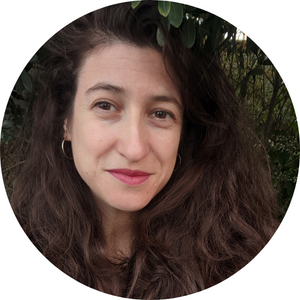ME AND MY JOB: LOUISA DUNNIGAN

1. What is your job title and company? And roughly how many people work for your company?
I’m a senior commissioning editor and head of audio at Profile Books. There are about 60 people at Profile and our imprints Serpent’s Tail, Viper and Souvenir Press.
2. What are your qualifications and working background, and when and how did you take on your current job?
I did a BA in English Literature and French, and then did a lot of internships after graduation, as well as things like translation, tutoring and copyediting. I started at Profile in 2015 as an editorial assistant, then became editorial and rights assistant, looking after our audio rights among other things, and setting up Profile's production and distribution arrangement with Little, Brown. While I moved away from working on other rights I continued to look after audio—and when we decided to bring audio production in-house in 2021, I took on the role of head of audio to run the next stage of our audio publishing.
3. What does your average working day entail?
I split my time between audio and editorial, so my day is a mix of tasks for both. For audio, it often depends on the season: there are periods when I’ll be looking through our upcoming publication schedule and making choices about which titles will appear in audio, and other times where my focus will be more on organising productions. In general it’s a lot of meetings and emails—checking in with studios about casting options and recording dates, getting in touch with American publishers to share files, and responding to queries in-house. But I'll often set aside time to do bigger projects too like looking through our backlist for titles that would work well in audio, sitting down with a book to consider how it might be adapted, visiting a studio or looking ahead at what we might do next.
4. What do you enjoy most about your job?
I love the varied nature of the books we publish, and the lovely people we work with. It's great meeting people and working together to bring a book to life in a different medium. And I love listening to the end product.
5. What achievements are you most proud of?
Although I had been looking after our audio publishing for a while, I had never been as closely involved in the production of audiobooks, so when I took on the role of bringing audio in-house I had to do a lot of learning quite fast. Within the year we’d set up a functioning audio publishing imprint, and I’m proud of how integrated into our broader publishing process it now is, and how smoothly it all (mostly) runs. I’m also proud of the publishing we’ve done—like Oliver Bullough’s Butler to the World, Adrian Chiles’ The Good Drinker and Vicky Spratt’s Tenants, all read by the authors, and complex productions like Janice Hallett’s upcoming The Mysterious Case of the Alperton Angels.
6. What are your biggest challenges?
On a day-to-day basis the biggest challenge is timing. Manuscripts often run late for a number of reasons, and this has a knock-on effect on the rest of the process. We can only record from final proofs, so we do a lot of chasing to find out when we’ll get them. Luckily our managing editors on the one side, and the studios on the other, are all very understanding as well as being super-efficient, so it all comes out on time in the end.
7. What have you experienced in your job and publishing that you didn’t expect?
When I first dreamed of working in publishing I thought I would be tucked away with manuscripts all day, reading. But the reality is far more social, because every title, and every format, requires collaborating with lots of other people. Agents, authors, studios, publicists, sales directors, editors, production managers… it’s part of the pleasure of the job to work with so many talented people, to learn from them and to see (or listen to) the final results of everyone’s labour out in the world.
8. What is the best thing about working for an independent publisher?
There is a sense of accountability, familiarity and investment. There are no invisible shareholders at Profile, or a corporation who owns us from afar. There is a bonus scheme that sees a percentage of the profit return to workers. We’re still at a size where everyone knows each other, and so there is a sense of working together to publish our books to the best of our ability.
9. How do you switch off from your work?
I have regular baths. I practice enthusiastic if wobbly yoga. I watch a lot of TV and eat a lot of popcorn.
10. What advice would you give anyone wanting to start or progress a career in publishing?
Most things in publishing can be learned on the job, but at the core of everything is a love of reading—so to start I’d say read widely, and practice articulating why you like or don’t like the books you’ve read. Do your own things that you enjoy—write, make zines, host a poetry reading, whatever actually interests you. It doesn’t have to be at a huge scale or public, but you’ve then started your own career, and can point to those things in an interview situation too.
In terms of progressing, that’s harder—every job in publishing, particularly independent publishing, is very different. I’ve had a hybrid role since the start, and different parts of my career have progressed at different points in different ways, and I’m sure that’s true for others too. One thing that is perhaps universal is the importance of asking. If you want something—the pay rise / promotion / new role—make sure to ask for it. The worst thing they can say is no, and then you can ask what you’d need to do to get there.